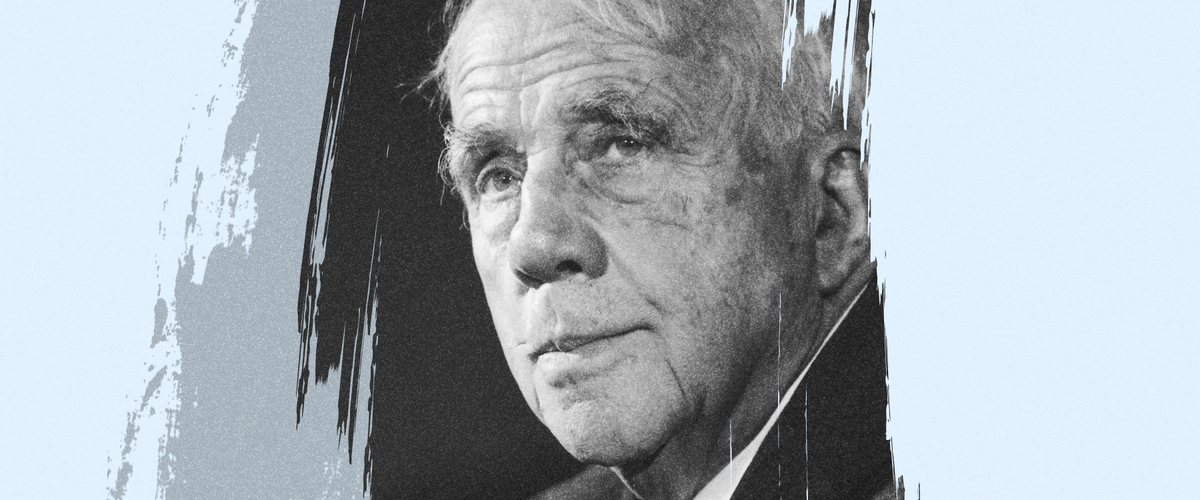The Sweetest Dream that Labor Knows: Williams and Frost
By Robert Pinsky
The poetry of William Carlos Williams and the poetry of Robert Frost are more similar, in spirit and practice, than conventional ideas about them might convey.
As examples of what I mean, here are two poems about work. Mowing and roofing, in these poems, have implications for the work of writing, but in both poems the physical labor itself is also respected, in attentive detail. “The fact is the sweetest dream that labor knows,” says Frost, summarizing one element in American modernism: attention to the hard edges and exact textures of reality, in reaction against a merely dreamy or idealized, poetic vision. “It was no dream of the gift of idle hours,/ Or easy gold at the hand of fay or elf.”
Williams, too, writes with an “earnest love.” If “anything more than the truth would have seemed too weak,” then a beautiful, deadpan sentence about eight foot strips of copper, beaten lengthwise at right angles, can dance across two stanzas.
“It was a time,” says Williams in I Wanted to Write a Poem, “when I was working hard for order, searching for a form for the stanzas, making them little units, regular, orderly. The poem “Fine Work with Pitch and Copper” is really telling about my struggle with verse.”
Like Marianne Moore writing about “The Master Tailor” with his “invisibly executed pockets” and “buttons of ocean pearl—no two alike,” these poets look at the tools and materials of work with implicit attention to the craft of verse. Frost’s unconventionally rhymed sonnet and Williams’ neat triads, both, are means toward a goal of lucid attention to materials and tools. Both poems listen to what the work whispers. Both take up the material and run an eye along it, while ruminating, both, with a feel for American idiom.
FINE WORK WITH PITCH AND COPPER
Now they are resting
in the fleckless light
separately in unison
like the sacks
of sifted stone stacked
regularly by twos
about the flat roof
ready after lunch
to be opened and strewn
The copper in eight
foot strips has been
beaten lengthwise
down the center at right
angles and lies ready
to edge the coping
One still chewing
picks up a copper strip
and runs his eye along it.
MOWING
There was never a sound beside the wood but one,
And that was my long scythe whispering to the ground.
What was it it whispered? I knew not well myself;
Perhaps it was something about the heat of the sun,
Something, perhaps, about the lack of sound–
And that was why it whispered and did not speak.
It was no dream of the gift of idle hours,
Or easy gold at the hand of fay or elf:
Anything more than the truth would have seemed too weak
To the earnest love that laid the swale in rows,
Not without feeble-pointed spikes of flowers
(Pale orchises), and scared a bright green snake.
The fact is the sweetest dream that labour knows.
My long scythe whispered and left the hay to make.
Originally published in the Robert Pinsky Poetry Forum, February 12, 2014.
